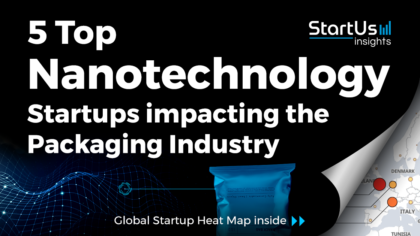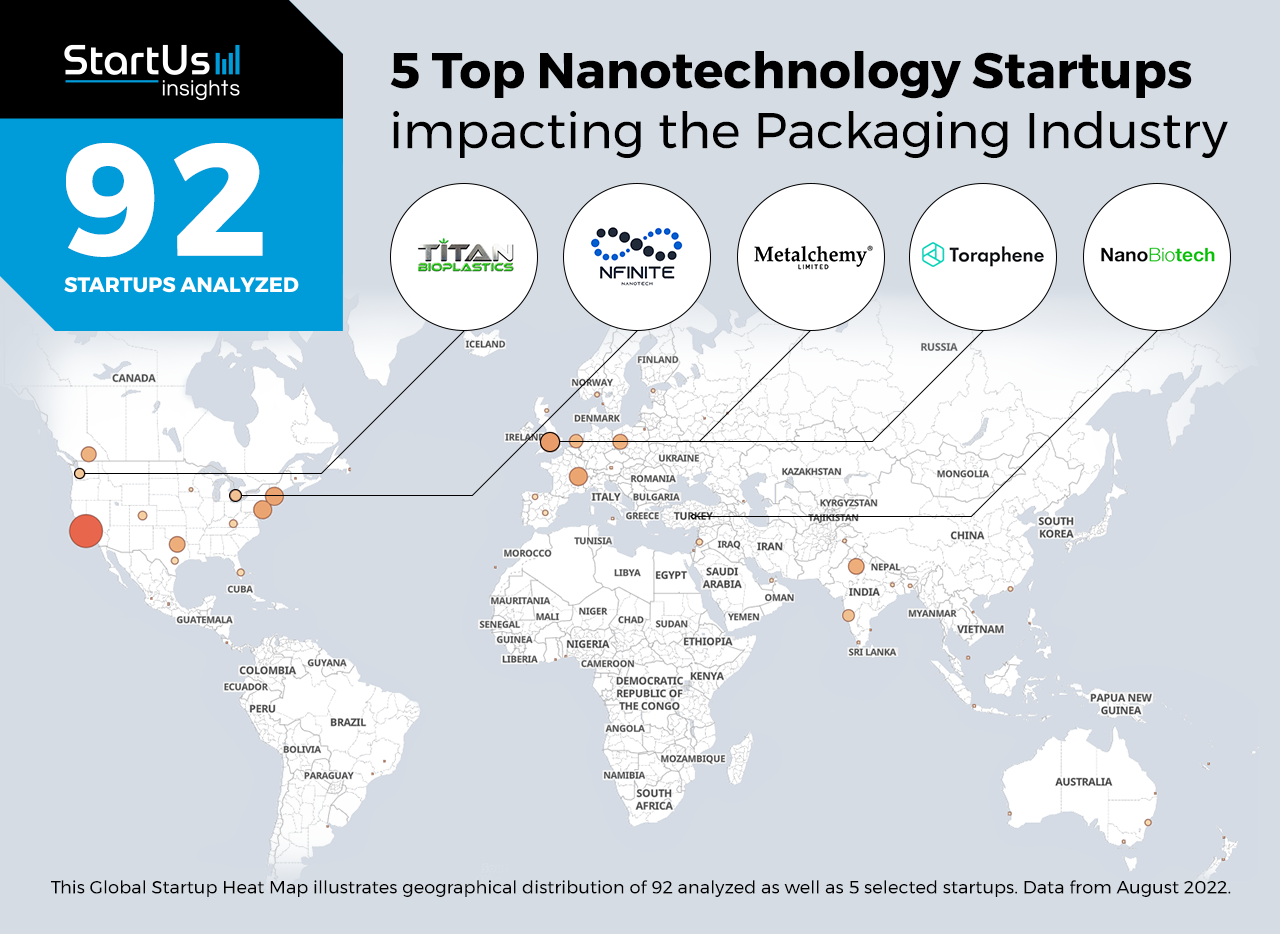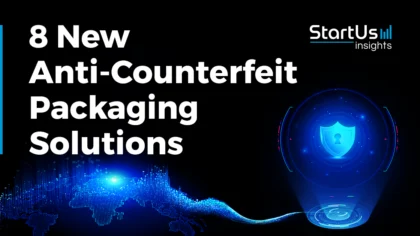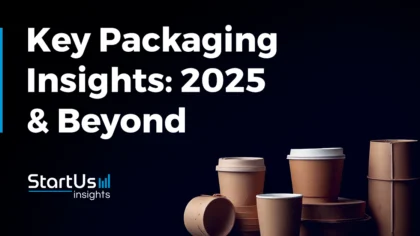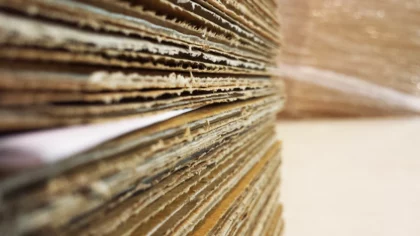Out of 92, the Global Startup Heat Map highlights 5 Top Nanotechnology Startups impacting the Packaging Industry
Startups such as the examples highlighted in this report focus on bio-based materials, food life extension, and coating technologies. While all of these technologies play a significant role in advancing packaging, they only represent the tip of the iceberg. This time, you get to discover five hand-picked nanotechnology startups impacting the packaging industry.
The Global Startup Heat Map below reveals the geographical distribution of 92 exemplary startups & scaleups we analyzed for this research. Further, it highlights five packaging startups that we hand-picked based on scouting criteria such as founding year, location, funding raised, and more. You get to explore the solutions of these five startups & scaleups in this report. For insights on the other 88 nanotechnology solutions impacting packaging, get in touch with us.
Nfinite Nanotechnology provides Spatial Atomic Layer Deposition (SALD)
Founding Year: 2021
Location: Waterloo, Canada
Partner with Nfinite Nanotech for Sustainable Packaging
Canadian startup Nfinite Nanotechnology develops nano-coating technology to improve the performance of compostable and recyclable packaging. Its SALD technology produces uniform, pinhole-free, and ultrathin nanocoating by layering the material one atomic layer at a time. In this way, the technology enables the creation of high-barrier recyclable packaging, compostable packaging, and aluminum-free packaging that performs like plastic, among others.
Titan Bioplastics develops Barrier Nanomaterials
Founding Year: 2017
Location: Seattle, US
Innovate with Titan Bioplastics in Food Packaging
US-based startup Titan Bioplastics creates nanotech-based sustainable materials. The startup’s technology, Titan Nanofill, increases the shelf life of organic material inside packaging by creating a physical barrier to gas exchanges in polymer materials via nanocomposites. Additionally, the nanocomposite features excellent dispersion, has a low cost, requires no cofactors, and increases protection against UV degradation, moisture, and oxygen. Altogether, this provides an economical and sustainable solution to preserve food for longer.
Metalchemy creates a Nano-Enabled Bioplastic
Founding Year: 2019
Location: London, UK
Collaborate with Metalchemy for Food Waste Reduction
UK-based startup Metalchemy makes durable, organic packaging using nanotechnology that keeps food fresh for longer. Its bioplastic-based food packaging is biodegradable, biocompatible, and made from natural ingredients. The packages also contain embedded green nanoparticles with antimicrobial properties that kill harmful bacteria, fungi, and viruses. Metalchemy’s nanotechnology-based plastics increase the relative shelf life of food such as meat, cheese, and fresh salad while also serving as an alternative to petrochemical-based synthetic plastics.
NanoBiotech manufactures Plant-based Nanomaterials
Founding Year: 2017
Location: Kayseri, Turkey
Use Toraphere’s solution for Durable Packaging
Turkish startup NanoBiotech creates antimicrobial and anticarcinogenic biological nanomaterials from silver, zinc, and iron metals from plants. In particular, its plant-based nanoparticles showcase a strong antimicrobial effect on a wide range of species of bacteria and also have a cytotoxic high effect on carcinogenic cells. Besides being fully biological-based, the materials are chemical-free, low cost, and do not have any negative effect on the environment or human skin. As such, their plant-based biological nanomaterial finds use in enhancing the hygienic conditions in food packaging and food storage.
Toraphene develops Polymer Enhancement Materials
Founding Year: 2018
Location: London, UK
Innovate with Toraphere for Eco-friendly Packaging
UK-based startup Toraphene specializes in advanced micro and nanomaterial technologies to upgrade polymers. Its nanomaterial technology upgrades the performance of regular polymer-based plastics while retaining sustainability to enable high-performance sustainable packaging. Besides, the startup offers a home compostable bag that degrades after 12 months at normal temperatures. The startup’s materials thus feature higher tear resistance and tensile strength than conventional plastic bags while having a much lesser carbon footprint.
Where is this Data from & how to Discover More Packaging Startups?
Staying ahead of the technology curve means strengthening your competitive advantage. That is why we give you data-driven innovation insights into the packaging industry. The insights of this data-driven analysis are derived from our Big Data & Artificial Intelligence (AI)-powered StartUs Insights Discovery Platform, covering 2 093 000+ startups & scaleups globally. The platform gives you an exhaustive overview of emerging technologies & lets you scout relevant startups within a specific field in just a few clicks. To explore packaging technologies in more detail, let us look into your areas of interest. For a more general overview, download our free Packaging Innovation Report to save your time and improve strategic decision-making.

